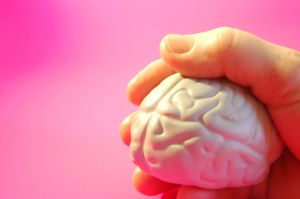 This week I took part in a couple of experiments on the psychology of religion and meditation. I was only too happy to fill in questionnaires for my friends who are writing dissertations for their psychology degree, but the experience raised some questions for me: How can you study religion scientifically? Can you find out anything meaningful about spiritual people if you start from humanistic assumptions? What’s the relationship between science and religion in the social sciences? Is this where you throw in the towel and decide that science and faith really are at odds?
This week I took part in a couple of experiments on the psychology of religion and meditation. I was only too happy to fill in questionnaires for my friends who are writing dissertations for their psychology degree, but the experience raised some questions for me: How can you study religion scientifically? Can you find out anything meaningful about spiritual people if you start from humanistic assumptions? What’s the relationship between science and religion in the social sciences? Is this where you throw in the towel and decide that science and faith really are at odds?
I attempt to address some of these questions with great trepidation as I’m not a psychologist, but I have a few thoughts, and great quote that I’ve been dying to use! Feedback welcome, especially from psychologists.
Science studies a subset of what life has to offer, and excludes a good deal: basically anything you cannot measure quantitatively. So we can’t expect psychology or any other branch of social science to take into account the existence of God. How then do psychologists and other social scientists study people – who (I believe) are essentially spiritual animals – in a meaningful way?
A good number of psychologists do (what I ‘humbly’ consider to be…) meaningful research on very interesting questions that can then be interpreted from either a faith based or humanistic viewpoint. An example is Justin Barrett‘s work on childhood beliefs. He has shown, along with other psychologists of religion, that we seem to be wired for belief. This is the beginning of a really interesting conversation. Either faith comes from our genes and doesn’t really exist, or God has given us a helping hand in the faith department by making belief in supernatural beings somewhat instinctive for us. Discuss…
Other psychologists get round the problem of science being unable (or unwilling) to postulate the existence of God in a different way. They start from the assumption that God doesn’t exist, and try to figure out why people would be deluded into believing in him (this is what I felt about one of the surveys that I took part in). I’m just not sure that such a huge bias will help anyone to study religion in a meaningful way.
My ideas on the relationship between science and faith are, at this stage, I think best summed up by pastor and developmental psychologist Daniel Harrell.
…theology can embrace scientific discovery without insisting that science buy theology’s presuppositions and without theology succumbing to science’s own predilictions. Faith allows for a perspective greater than human perception can muster, but this is never to deny the perspective that human perception can muster. We need not discount scientific discovery on religious grounds, even when we do take issue with scientific explanations as insufficient to paint the complete picture.
Nature’s Witness, Abingdon Press, 2008, p66




